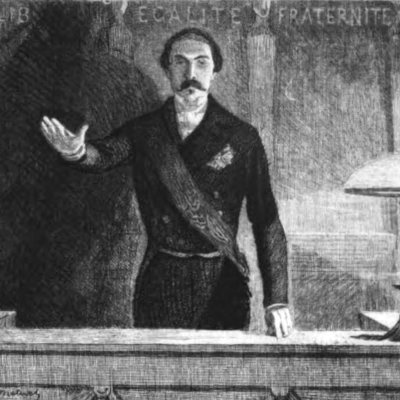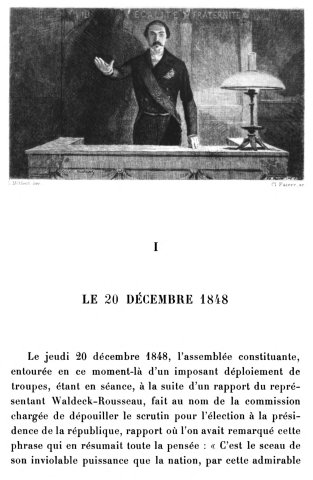"December 20, 1848" (V. Hugo, Napoléon le Petit, Edition nationale, t35) - Faivre after Métivet
Notice précédente Notice n°13 sur 19 Notice suivante
Description
"Finally there was silence, the President of the Assembly struck a few strokes of his wooden knife on the table, the last rumors died away, and the President of the Assembly said:
- I will read the formula of the oath.
There was something religious about this moment. The Assembly was no longer the Assembly, it was a temple. What added to the immense significance of this oath was that it was the only one to be taken throughout the territory of the Republic. February had rightly abolished the political oath, and the Constitution, equally rightly, had retained only the presidential oath. This oath had the dual character of necessity and grandeur; it was the executive power, the subordinate power, which swore it to the legislative power, the superior power; it was even better than that: unlike the monarchical fiction where the people swore to the man invested with power, it was the man invested with power who swore to the people. The president, a public servant, swore allegiance to the sovereign people. Bowing before the national majesty visible in the omnipotent Assembly, he received the Constitution from the Assembly and swore obedience to it. Representatives were inviolable, and he was not."
- Signed below the engraving on the left "L. Métivet inv.", on the right "Cl. Faivre sc."
Technical Data
Notice #024677


